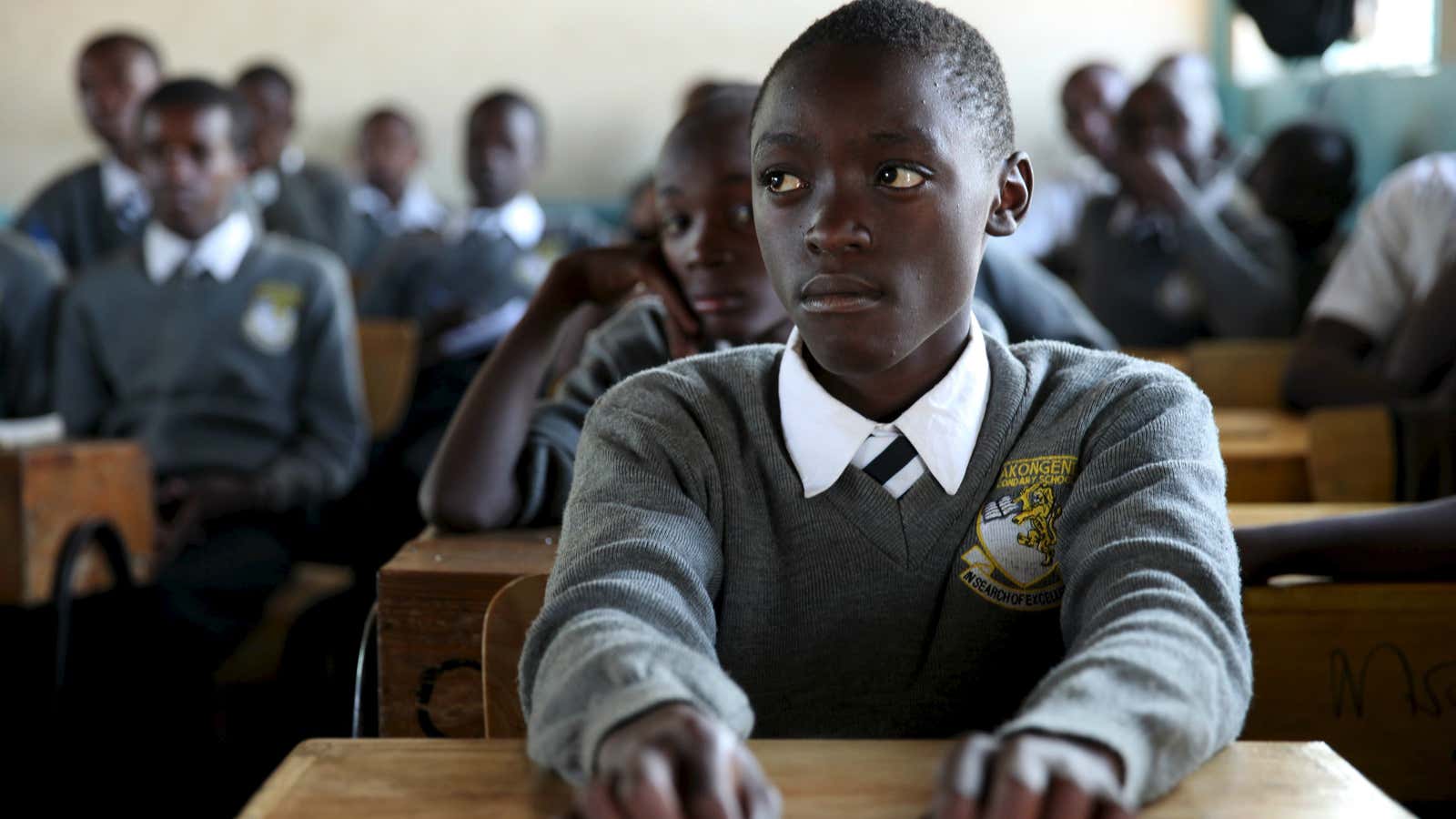In 1984, Brother Brian Carty founded the De la Salle middle school in Manhattan for poor, smart kids. Almost immediately he noticed the boys falling behind. The girls signed up for study-abroad programs, got into top colleges, and became doctors. The boys struggled. His applicant pool was suddenly 70% girls.
He asked feeder schools where the boys were. “We’re losing them,” they said. Smart was not cool in the neighborhoods where the school’s students grew up.
“We had to get to them sooner,” Brother Brian, as he is known, told me a few years ago. “This is their healing.”
Research, it seems, is now catching up with reality.
A new study shows that family disadvantage—poverty, missing fathers, bad neighborhoods and worse schools negatively impacts boys a lot more than girls. Poor boys perform worse than their sisters, with lower graduation rates, worse performance on standardized tests, higher levels of suspensions and rates of criminal offenses. Among blacks and Hispanics, the gender gap is even wider.
The latest research does not surprise Brother Brian. “We have known this for a dog’s age,” he tells Quartz. “And if we know this, what they hell are we doing to try and close the gap?”
In 2003, he founded George Jackson Academy for high-achieving, economically disadvantaged boys in the 4th to 8th grades. (It is named for George Jackson, who grew up in Harlem, went to Harvard and went on to become CEO of Motown records. He and Brother Brian went to school together.)
Brother Brian has been in the classroom with smart kids from disadvantaged backgrounds for 50 years. Anyone who has taught boys, he says, knows there are stark differences. When we spoke he had just returned from his homeroom class with 16 6th-grade girls (he separates homerooms by gender).
“They are different species!” he says, roaring with laughter.
A story he loves to tell: his students do all the janitorial work at the school. When a group of girls walk into a room with a bucket of spilled water they grab a mop, get some towels and clean it up. “The boys? Thirty minutes later they are still studying the pattern of the spill,” he says.
The new research, a working paper by the Institute for Policy Research at Northwestern University, quantifies what Brother Brian has seen for decades.
It looks at matched birth certificates, health, disciplinary, academic and high school graduation records for more than 1 million children born in Florida between 1992 and 2002. It then examines health and education databases to identify 150,000 opposite-sex siblings from the same mother. The conclusions are stark:
Relative to their sisters, boys born to low-education and unmarried mothers, raised in low-income neighborhoods, and enrolled at poor-quality public schools have a higher incidence of truancy and behavioral problems throughout elementary and middle school, exhibit higher rates of behavioral and cognitive disability, perform worse on standardized tests, are less likely to graduate high school, and are more likely to commit serious crimes as juveniles.
One of the co-authors, David Autor from MIT, told the New York Times that the disparity could be down to a lack of male role models at home:
It’s quite possible that daughters are drawing the lesson that I’m going be the sole provider and the head of the family and take care of everything … Sons could be drawing the lesson that the men I see around me are not working or committed fathers. They’re doing other stuff.
The research claims that schools only have a small effect on mitigating this gender gap. But Brother Brian, not surprisingly, thinks schools—including all-boys schools—can make a huge difference.
Give boys a mission, and consistency and results follow. “This is a community,” he says. “You are a known quantity, you are given responsibility you are held accountable. Then you can grow.” At George Jackson, 95% of GJA graduates enrolled in a four-year college.
Brother Brian thinks policymakers are afraid to promote same-sex education, or even just time during the day for kids to be with just-their-gender. “Anything separate is seen as inherently unequal,” he said.
“But they need it.” And by they, he means the boys.
